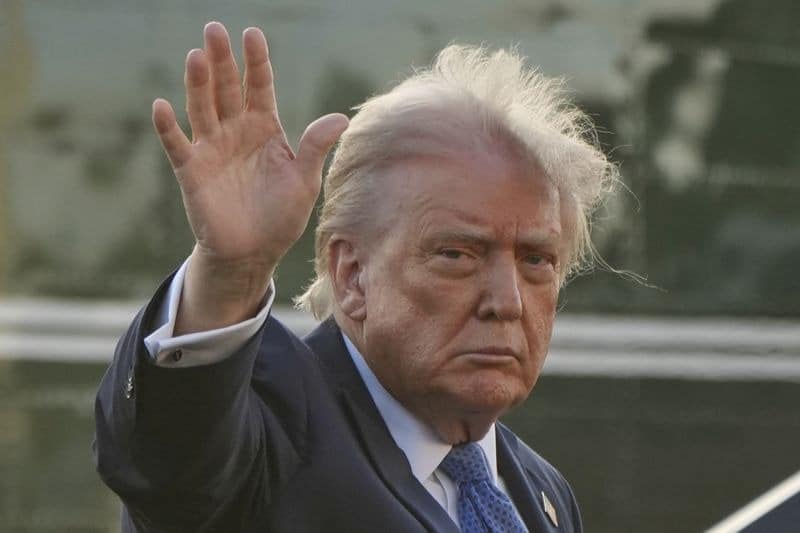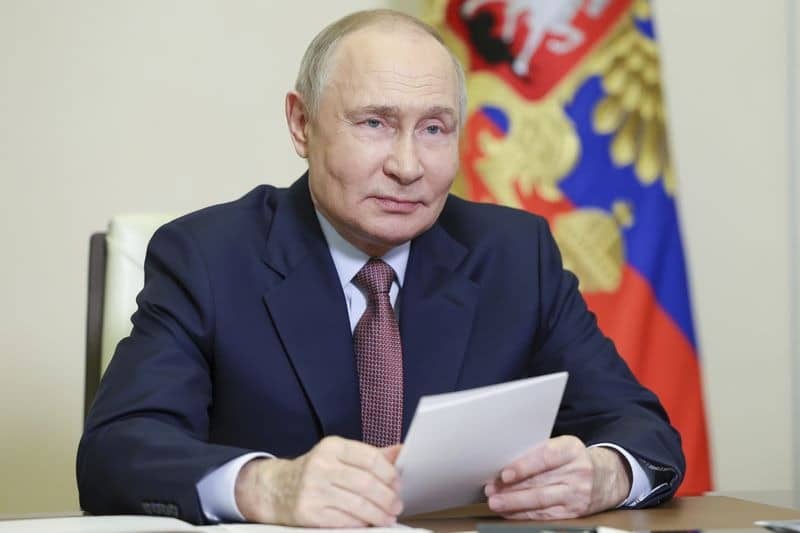Trump Grows Frustrated as Ukraine Peace Deal Eludes Him Ahead of 100th Day in Office
With just five days remaining until his 100th day back in office — and 93 days past his own deadline for ending the war in Ukraine — President Donald Trump is expressing mounting frustration over his failure to broker a peace deal between Russia and Ukraine, according to sources familiar with the matter.
Behind closed doors, Trump has repeatedly told advisers that negotiations have proven far more difficult than he anticipated. One source said he often points to the deep animosity between Russian President Vladimir Putin and Ukrainian President Volodymyr Zelenskyy as a major obstacle.
That frustration boiled over after Russia launched its most severe aerial assault on Kyiv since last summer, killing at least 12 people.

“I didn’t like last night,” Trump told reporters during an Oval Office meeting with Norway’s prime minister. “I wasn’t happy with it, and we’re in the midst of talking peace, and missiles were fired, and I was not happy with it.”
Trump’s remarks marked a rare moment of direct criticism of Russia. Since returning to office, he has generally reserved most of his ire for Ukraine.
Rising Tensions, Uneven Criticism
The attack and Trump’s reaction underscored a growing sense of exasperation within the White House about the president’s inability to pressure Putin into halting the war. When pressed by a reporter on whether he was doing enough to confront Moscow, Trump snapped, “You don’t know what pressure I’m putting on Russia. We’re putting a lot of pressure on Russia, and Russia knows that.”
Still, Trump was quick to spread the blame, saying, “It takes two to tango, and you have to have Ukraine want to make a deal, too.” He insisted Russia had already made what he called a “pretty big concession” by not “taking the whole country.”
“Stopping the war,” Trump claimed, “is a big concession.”
On his social media platform Truth Social, Trump made a direct appeal to the Russian president: “Vladimir, STOP!” — an unusually personal plea. He added, “Not necessary, and very bad timing.”
Yet his message to Putin was just 30 words long, in stark contrast to a 259-word post the day before aimed at Zelenskyy, in which he accused the Ukrainian leader of prolonging the conflict by rejecting a U.S. peace proposal that would allow Russia to retain much of the territory it has seized — a framework that has alarmed several U.S. allies, CNN reported.
Trump Begins to Set a Timeline
Though Trump reiterated Thursday that he has “no allegiance” to either side, his comments suggest growing impatience and an emerging timeline for action.
Asked what he would do if Russia continued bombing Ukraine, Trump replied, “I’d rather answer that question in a week. I want to see if we can have a deal. No reason to answer it now, but I won’t be happy, let me put it that way.”
NATO Diplomacy and Lingering Doubts

Thursday’s Oval Office meeting also featured Norwegian Prime Minister Jonas Gahr Støre and his finance minister Jens Stoltenberg — the former NATO Secretary General who worked closely with Trump during his first term. Stoltenberg earned a reputation as a “Trump whisperer” for his success in persuading the president not to withdraw from the alliance.
Trump recalled Stoltenberg warmly, calling him “tremendous.”
Later in the day, current NATO Secretary General Mark Rutte arrived for an unscheduled meeting with Trump. Their talks focused on the upcoming NATO summit in The Hague — which European leaders have worried Trump may skip due to his renewed skepticism of the alliance.
Speaking outside the White House, Rutte confirmed that Ukraine was discussed and pushed back on Trump’s optimism about Putin’s willingness to negotiate.
“I worked with him [Putin] for four years between 2010 and 2014,” said Rutte, referencing his time as Dutch prime minister. “I stopped trying to read his mind.”
Rutte added that NATO remains united in its assessment of Russia as a long-term threat to Euro-Atlantic security.
“We all agree, in NATO, that Russia is the long-term threat to NATO territory, to the whole of the Euro-Atlantic territory,” he said.
While acknowledging that “something is on the table for Russia” in peace talks, Rutte maintained the burden now lies with Moscow.
“Ukrainians are really playing ball,” he said. “I think the ball is clearly in the Russian court now.”